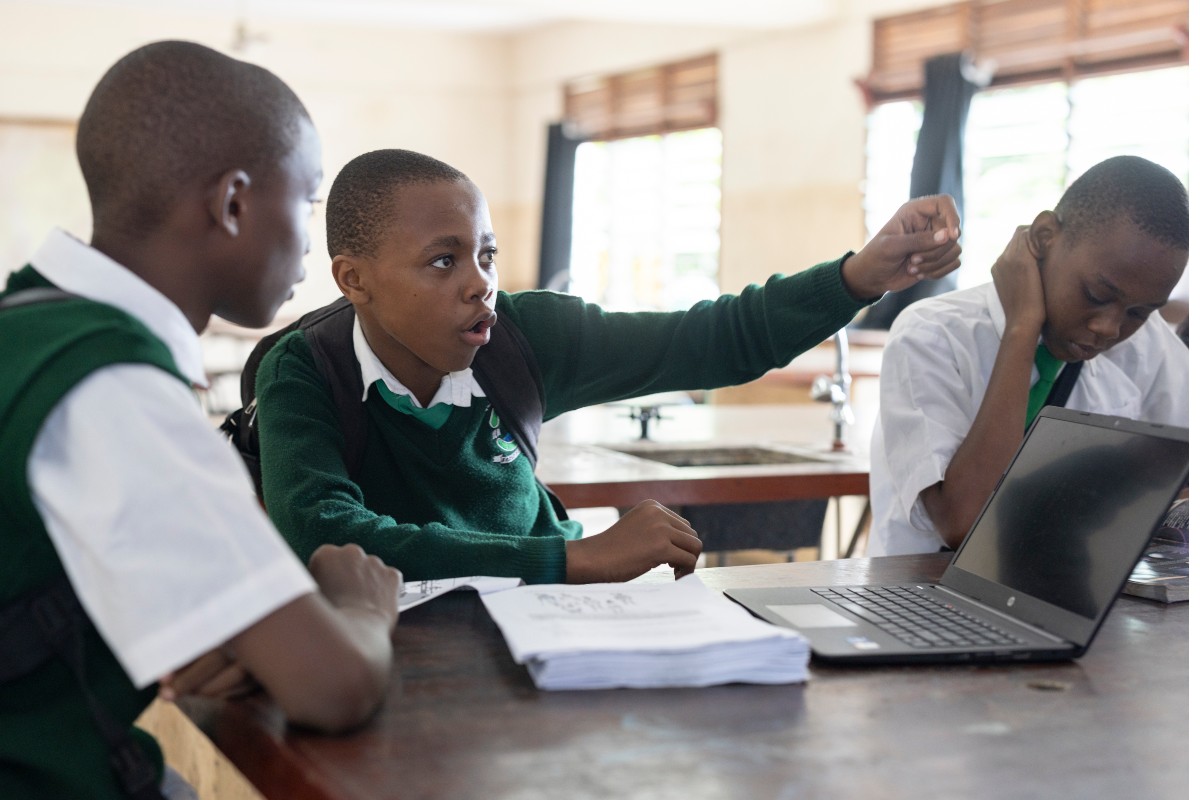
Joshua Ongwae

Why we should involve youth in policy-making
Aspirants in the forthcoming general elections have gone overdrive and promised to enact policies that will address challenges facing young people – including unemployment and lack of resources – if elected. Unfortunately, these promises may not be kept, and young people’s voices may not be heard and taken seriously. Even worse, politicians may use the youth to propagate violence along political and ethnic lines, as has been the case in the past.
Young people constitute the biggest proportion of the Kenyan population and are among the most affected demographic groups in terms of socio-economic and political development. Data from the 2019 census revealed that 35.7 million (75.1%) Kenyans, about three out of four, are below 35 years, while those aged below 24 years constitute 59.5%, about three in five of the entire population. For Kenya to realize a demographic dividend, its young must be healthy, educated, skilled, and actively participate in policy and decision-making processes.
Several policy frameworks emphasize the importance of child and youth participation in policy-making processes. Article 12 of the Convention on the Rights of the Child stipulates that States Parties shall assure the child who can form his or her own views the right to express those views freely in all matters affecting the child, and such views given due weight in accordance with the age and maturity of the child. The Constitution of Kenya (2010) and the Children’s Act (2011) have put in place legal provisions for public participation in policy formulation providing an opportunity for children and youth to air their views and contributions to policy development and provided a framework for establishing children’s assemblies.
Unfortunately, the goodwill expressed by these frameworks has not translated into the active participation of children and youth in decision-making processes. Years of marginalization have led to young people being averse to turning up to vote and presenting themselves for elective positions. In some cases, the only way youth can be wooed is through cash handouts by politicians, which is very unfortunate.
Moreover, young people are not adequately taking advantage of the opportunities presented by the constitution to present their views and asks during policy and budget-making processes. Ignorance on policy frameworks that promote youth participation, failure of organizations to invest resources to build the advocacy capacity of young people, and organizations’ preference of experience to training, mentorship, and innovation, further hinder youth participation.
It is important that youth actively participate in decision-making processes and actualize the slogan, “Nothing About Us Without Us.” Their participation will ensure that their needs are prioritized, and resourced. Participation will also help young people learn how governments operate and build their interest in governance. Most importantly, the issues being addressed are likely to have a greater impact on children and youth who will be the adults of years to come hence the need for them to be involved and chart their future. Several strategies can be used to enhance their participation.
Organizations should build the capacity of youth in policy-making processes by increasing youth’s awareness of the stages of policy development and opportunities available for participation, as well as facilitating their participation. Additionally, organizations and governments can provide young people with opportunities for participation in global, national, and sub-national advocacy platforms where their voices can be heard. For example, at the county level, governments should equitably nominate young people to serve in different capacities. This may include nominating them to the County Budget Economic Forum, responsible for identifying and budgeting for the citizen’s priorities.
Organizations can strategically support young people seeking elective positions by training them on strategies to build their brands and raise campaign resources. Through social accountability approaches, young people can be supported to generate evidence from the grassroots level to advocate and hold decision-makers accountable for their commitments
Meaningful youth participation demands that the youth have opportunities, capacities, and benefit from an enabling environment and relevant programs and policies at all levels. Gender equality, socio-economic status, and disability inclusion should also be factored in all interventions.
Young people are the most valuable resource that exists in Kenya today, so decision-makers and society should not waste it. This year presents us with a perfect opportunity to end the empty rhetoric on ensuring meaningful youth participation in decision-making processes. All stakeholders, including government, civil society, and youth themselves, should work together to ensure young people’s voices are heard, respected, and taken seriously.




